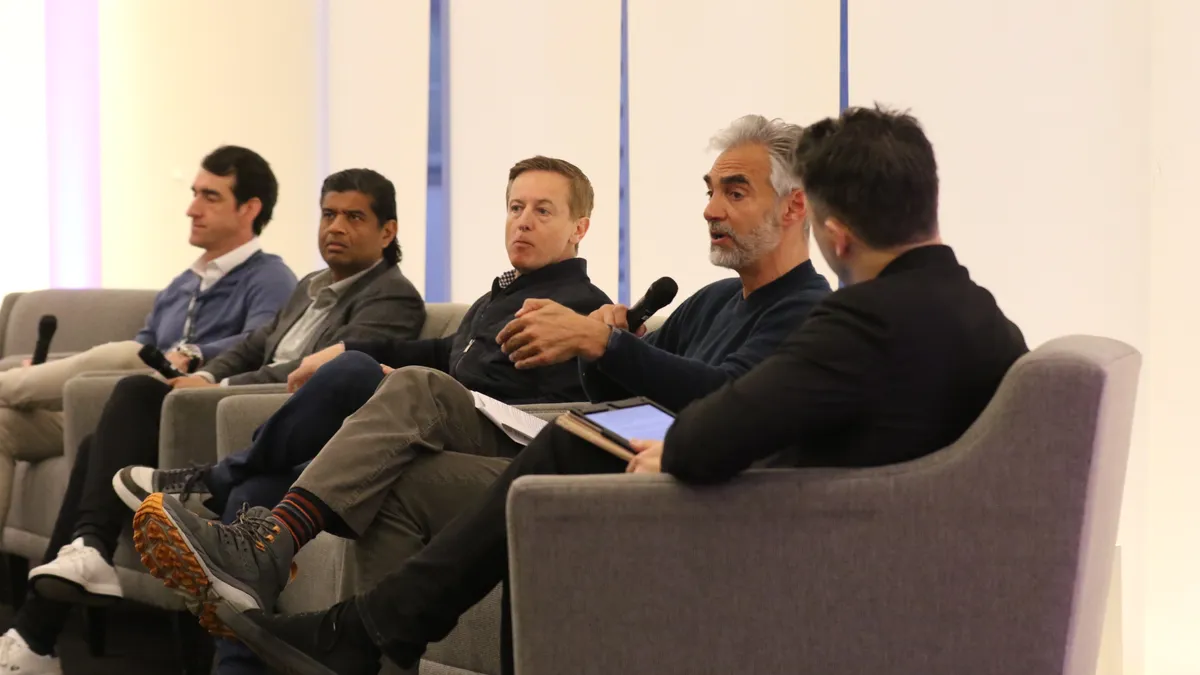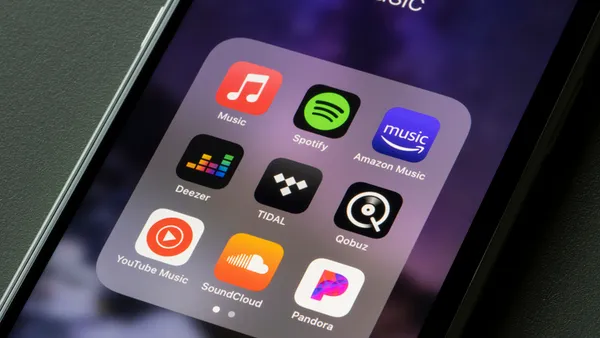Dive Brief:
- Generation Z is more concerned with its mental and physical health than millennials or Generation X, a heightened anxiety that influences the way young adults shop, per a survey by consulting firm A.T. Kearney that was shared with Marketing Dive. A key takeaway from the findings is that brick-and-mortar retailers have an opportunity to appeal to these digital natives who grew up on smartphones and are looking to disconnect from the stresses of social media while they shop.
- Almost half (46%) of Gen Zers said they're worried about mental and physical health, putting them on par with the 47% of the older Baby Boomer generation who expressed such concerns. Only 38% of millennials and 44% of Gen Xers are worried about their health. Gen Z also is most likely to want to cut their social media time, to feel overwhelmed by the news and to feel stressed by social media, the study found.
- More than four-fifths (81%) of Gen Z said they like to shop at brick-and-mortar stores, with 58% saying visiting stores lets them disconnect from social media and the digital world, more than any other generation. A.T. Kearney surveyed 1,500 U.S. and Canadian consumers among four generations.
Dive Insight:
Gen Z, the demographic group born between 1995 and 2015, shows several significant differences from older generations in their shopping habits. Brands and retailers that adapt to these changing preferences are most likely to succeed with a group that shows the least loyalty among any demographic group and will avoid stores and websites that provide a negative experience, A.T. Kearney's survey suggests.
The generation is very health-conscious, with worries about mental and physical health weighing on their purchase decisions. About two-thirds (67%) of Gen Z prefer products made with ingredients they can understand, and tend to buy products in health and wellness categories more frequently than other generations do. Brands like Chipotle Mexican Grill and Anheuser-Busch's Bud Light beer have made ingredients a key part of their campaigns in the past year to appeal to health-conscious consumers.
Gen Z also is more aware of environmental issues, with 65% saying they prefer simple packaging and 58% saying they want eco-friendly packaging. Half of the group seeks products that are locally sourced or made, and 57% are seeking products that are environmentally sustainable, but fewer are willing to pay a premium price for them. That finding suggests that brands need to consider how to provide value with eco-friendly products, per A.T. Kearney. Brands like Nestlé's Poland Spring and water-filter maker Brita recently have emphasized environmental causes to appeal to socially conscious consumers as plastic bottles become a major source of pollution.
In addition, the generation has a love-hate relationship with social media that brick-and-mortar stores can use to their advantage. While Gen Z has never known a world without the internet, being a digital native doesn't necessarily translate into an unwavering affinity for social media apps that are key sources of news, information and online interaction. Gen Z expressed the most anxiety associated with social media than any other age group, with 22% saying they felt stressed or overwhelmed by social media, ahead of millennials (18%), Gen X (13%) and Boomers (8%), A.T. Kearney found.
Brick-and-mortar stores can be places for Gen Z to disconnect from social media and the digital world as they shop. Almost three-fourths (73%) of Gen Z use stores to discover products, and 74% like a well curated store experience focused on a limited number of products, per A.T. Kearney. Gen Z also is budget-conscious, with 86% of respondents saying they are looking for exclusives and promotions including free samples, giveaways and contests. Eighty-three percent of Gen Zers considered in-store support tools like maps and kiosks as at least moderately important, while 79% said security considerations such as the presence of guards is important. Shootings at Walmart locations in Southaven, Miss., and El Paso, Tex., in the past two months have made safety risks a bigger concern for soft targets like retailers, MarketWatch reported.
While A.T. Kearney's study focused on the attitudes of Gen Z as shoppers, other research indicates the importance of smartphones in media consumption among the demographic group. Roughly four out of five (81%) surveyed Gen Zers said putting on a mobile video while doing other things keeps them entertained, per a study by entertainment company Whistle. That all-day consumption provides opportunities for marketers and video publishers to connect with Gen Zers throughout a wider selection of dayparts that were much more limited before the smartphone era.











